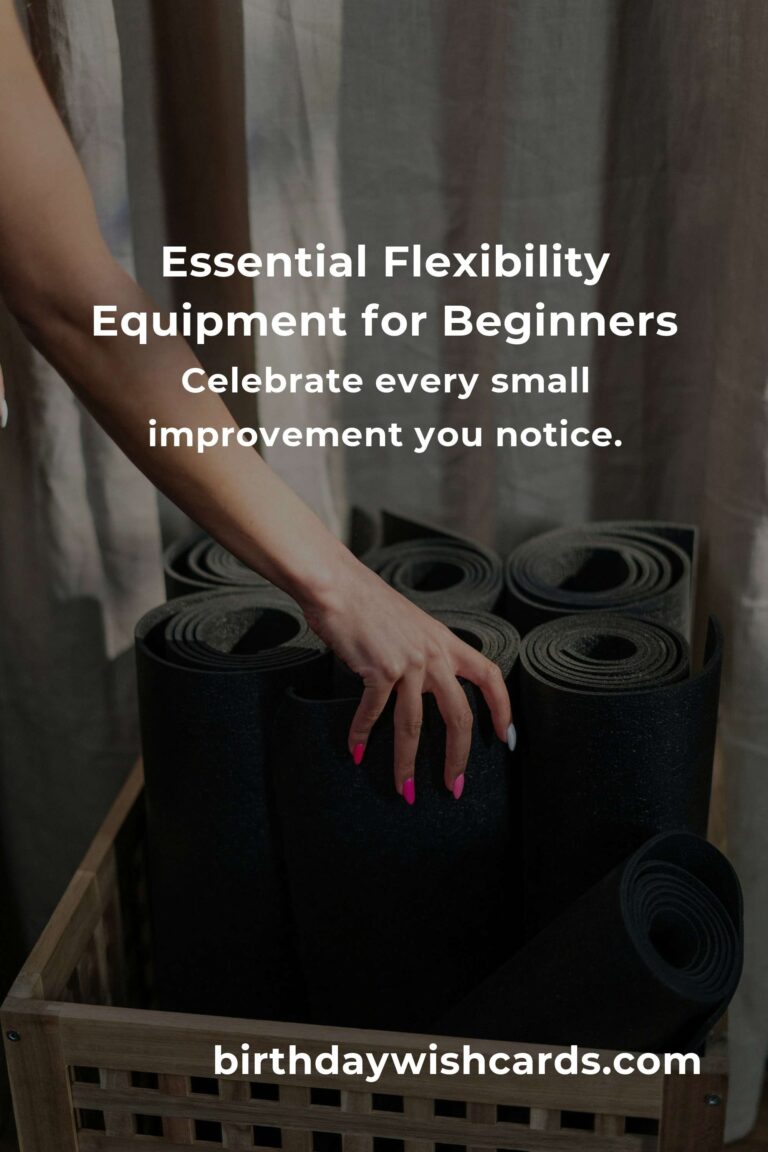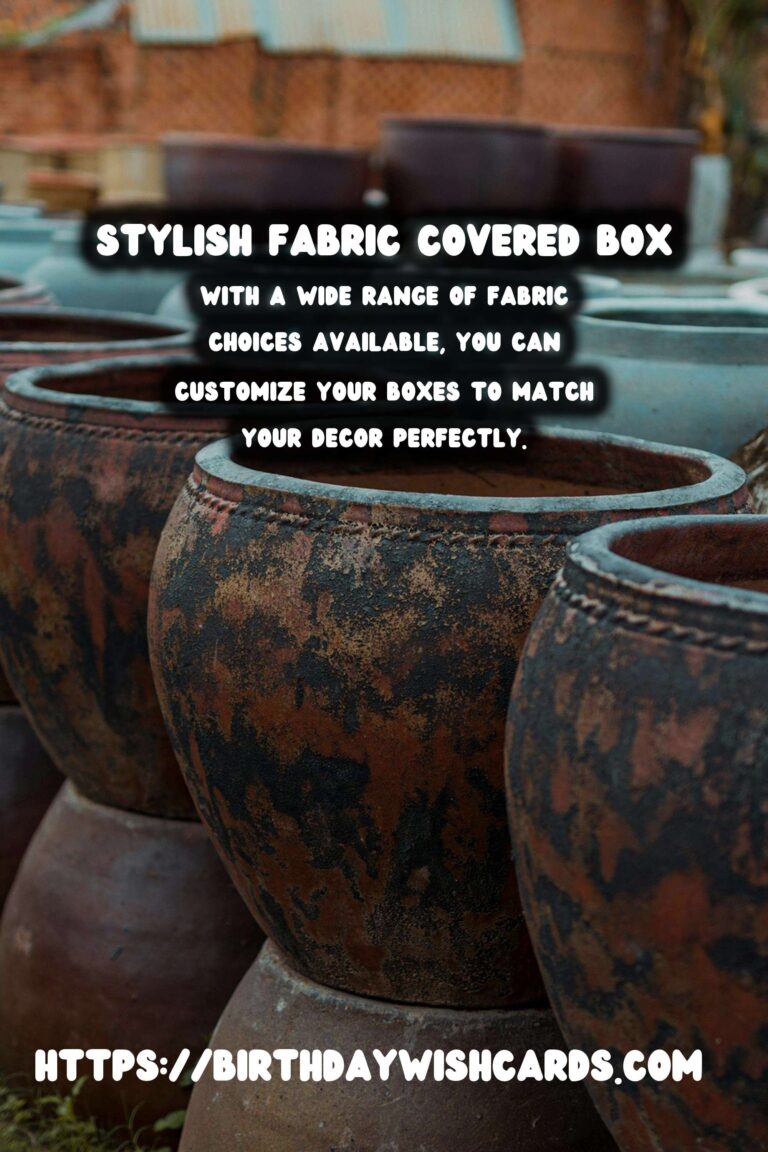
In today’s world, storage solutions are not just about functionality but also about adding aesthetic value to your space. Fabric covered boxes offer a perfect blend of both. They are an excellent way to organize your belongings while adding a touch of style to your home or office decor. In this comprehensive guide, we will walk you through the process of creating your own DIY fabric covered boxes.
Why Choose Fabric Covered Boxes?
Fabric covered boxes are a versatile and stylish option for storage. Unlike plastic or plain cardboard boxes, they add color, texture, and personality to any room. With a wide range of fabric choices available, you can customize your boxes to match your decor perfectly.
Materials Needed
To create your own fabric covered boxes, you will need the following materials:
- Cardboard or pre-made boxes
- Fabric of your choice
- Scissors
- Measuring tape
- Spray adhesive or fabric glue
- Paintbrush (if using glue)
- Ruler
- Pencil or marker
Step-by-Step Instructions
Step 1: Choose Your Box
Select a sturdy cardboard box that suits your storage needs. If you prefer, you can purchase pre-made boxes from a craft store.
Step 2: Measure the Box
Use a measuring tape to determine the dimensions of your box. Measure the length, width, and height of each side. Record these measurements as you will need them to cut the fabric accurately.
Step 3: Select and Prepare the Fabric
Choose a fabric that complements your decor. Make sure it is large enough to cover the entire box. Iron the fabric to remove any wrinkles and cut it into pieces according to the measurements of your box, adding an extra inch on each side for folding.
Step 4: Apply Adhesive
Using either spray adhesive or fabric glue, apply a thin layer onto one side of the box. If you’re using glue, apply it with a paintbrush for even distribution. Let it become tacky before proceeding.
Step 5: Attach the Fabric
Carefully place the fabric onto the glued side of the box, smoothing out any bubbles or wrinkles. Fold the extra inch of fabric over the edges and secure it inside the box.
Step 6: Repeat for All Sides
Repeat the adhesive and fabric application process for each side of the box. Ensure that the fabric is tightly secured and the pattern aligns, if applicable.
Step 7: Finish the Edges
For a polished look, fold the fabric neatly at the corners and secure it with glue. Trim any excess fabric for a clean finish.
Decorative Ideas
Once your fabric covered box is complete, consider adding decorative elements such as ribbon, buttons, or labels to enhance its appearance.
Conclusion
DIY fabric covered boxes are a cost-effective and creative way to add storage and style to any space. With a little time and effort, you can transform ordinary boxes into beautiful decorative pieces that reflect your personal taste.
Fabric covered boxes offer a perfect blend of functionality and style. They are an excellent way to organize your belongings while adding a touch of elegance to your home or office decor. With a wide range of fabric choices available, you can customize your boxes to match your decor perfectly. DIY fabric covered boxes are a cost-effective and creative way to add storage and style to any space. 
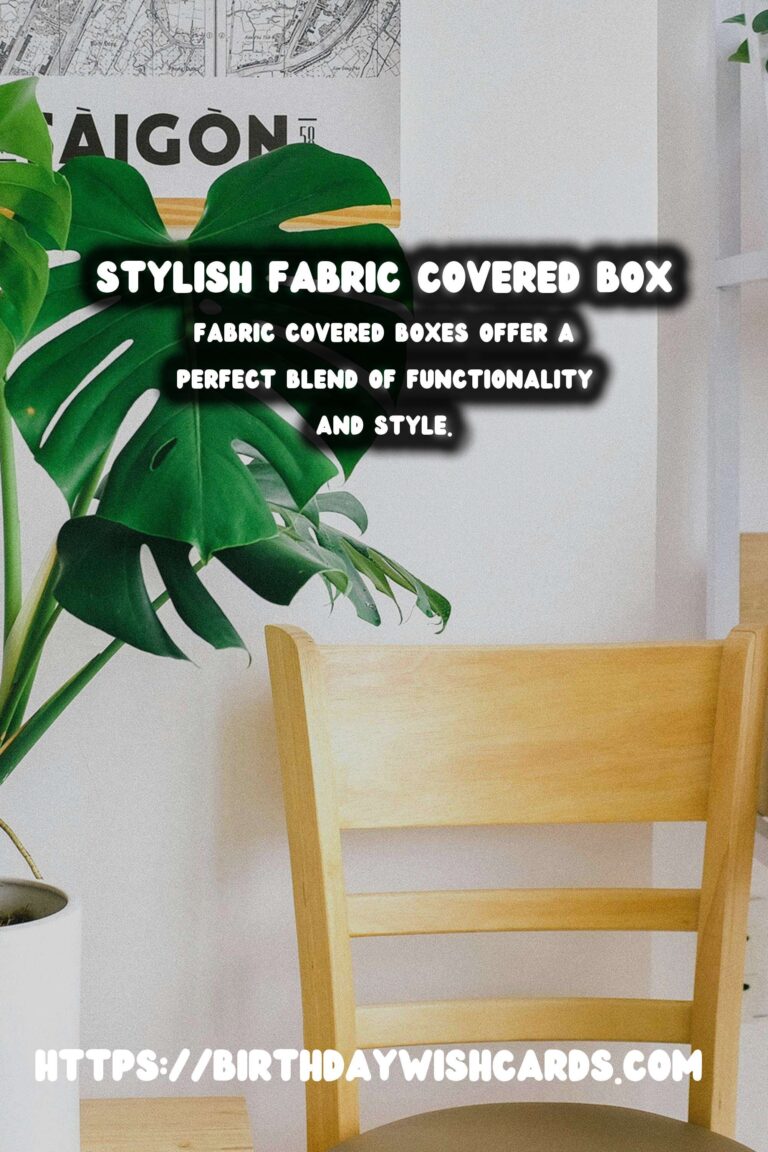
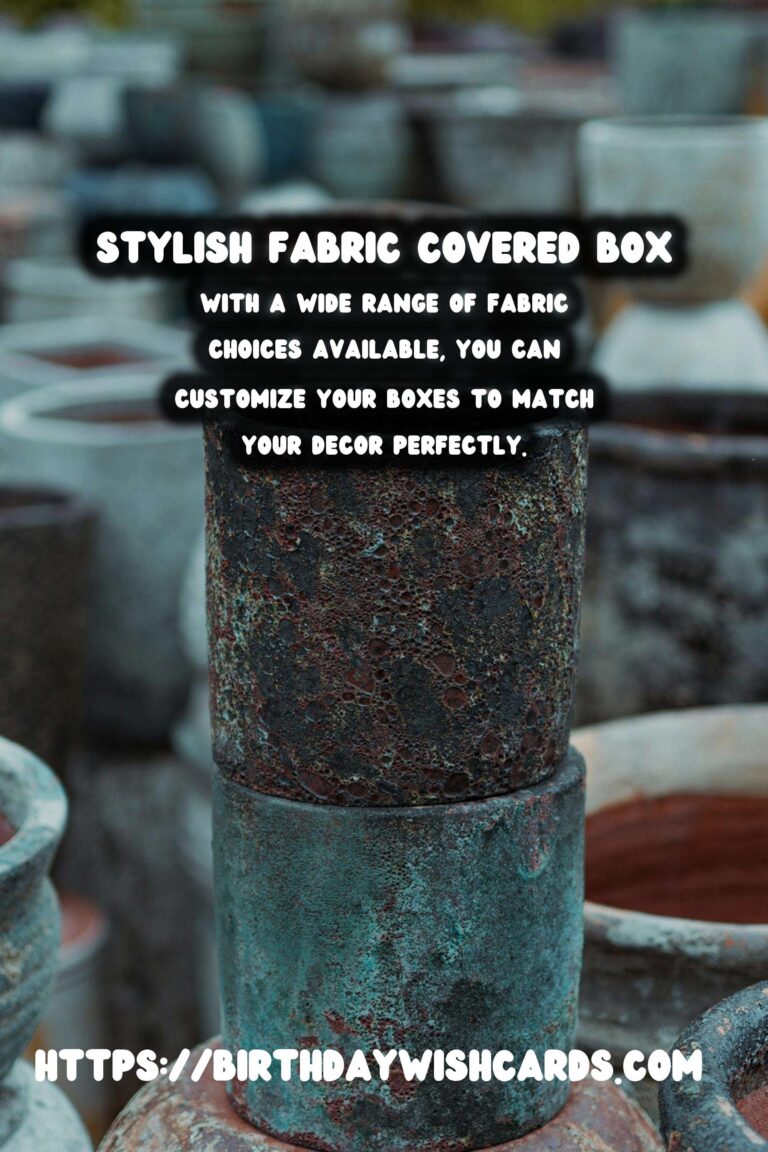
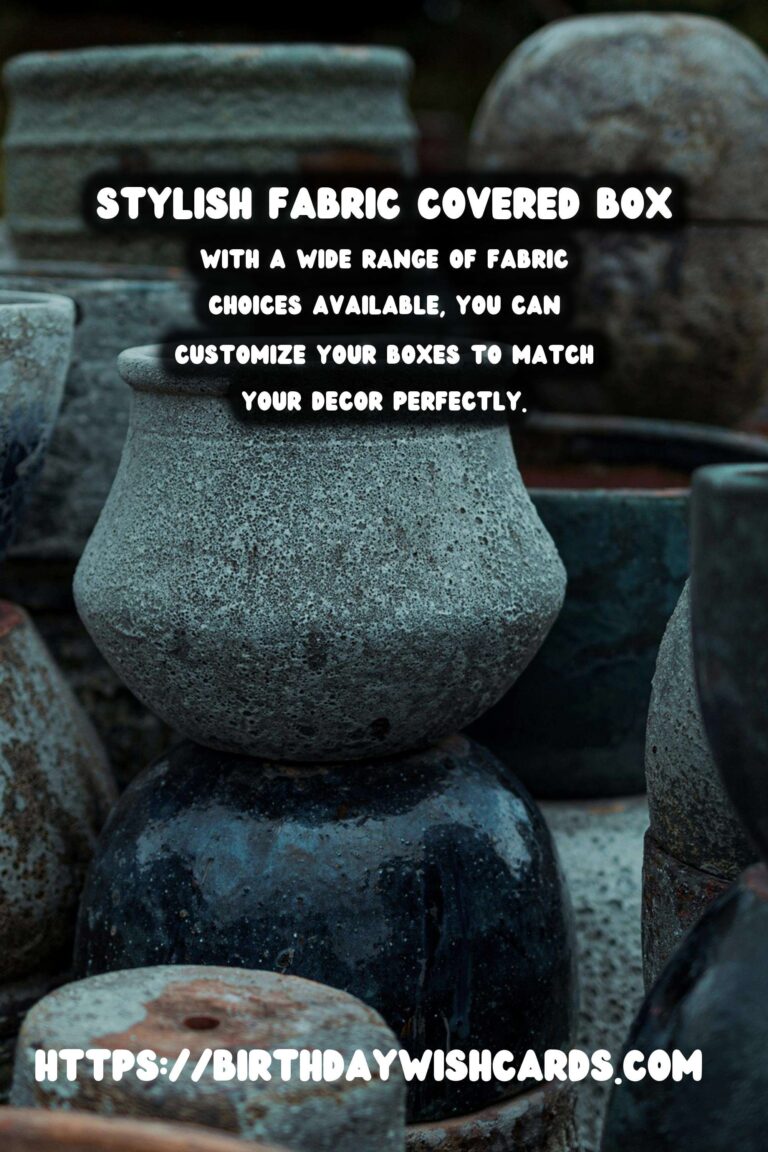
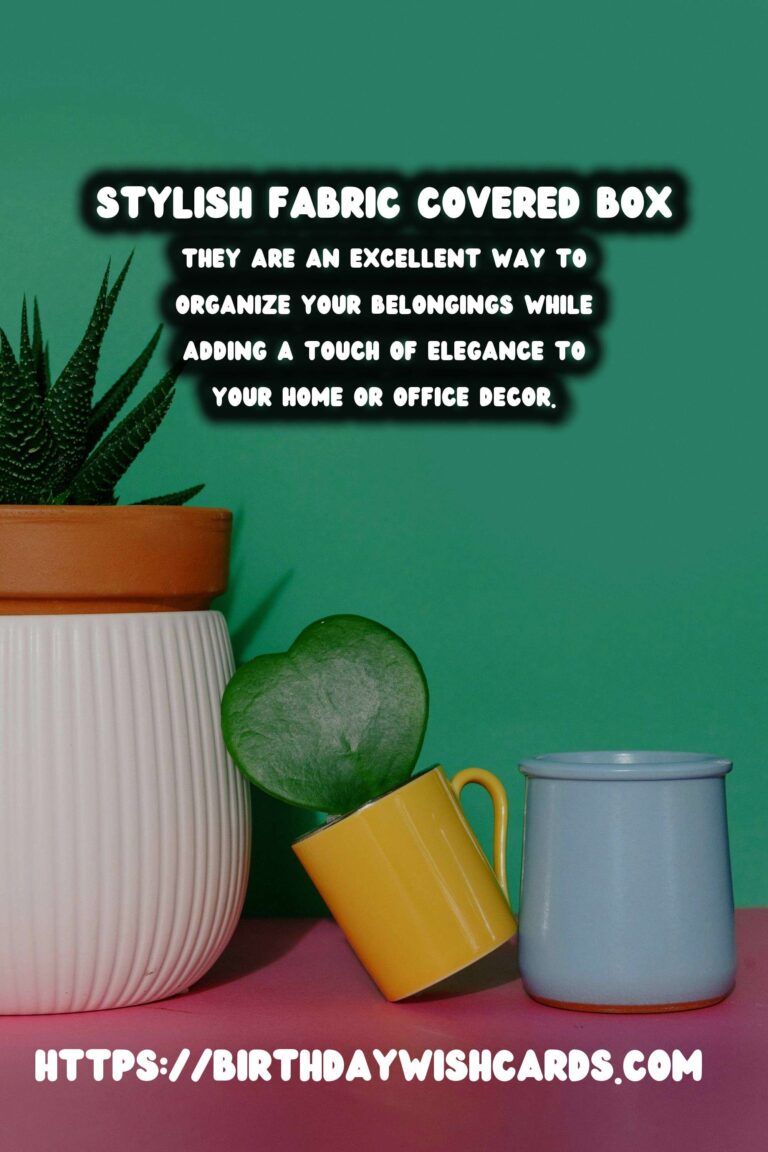
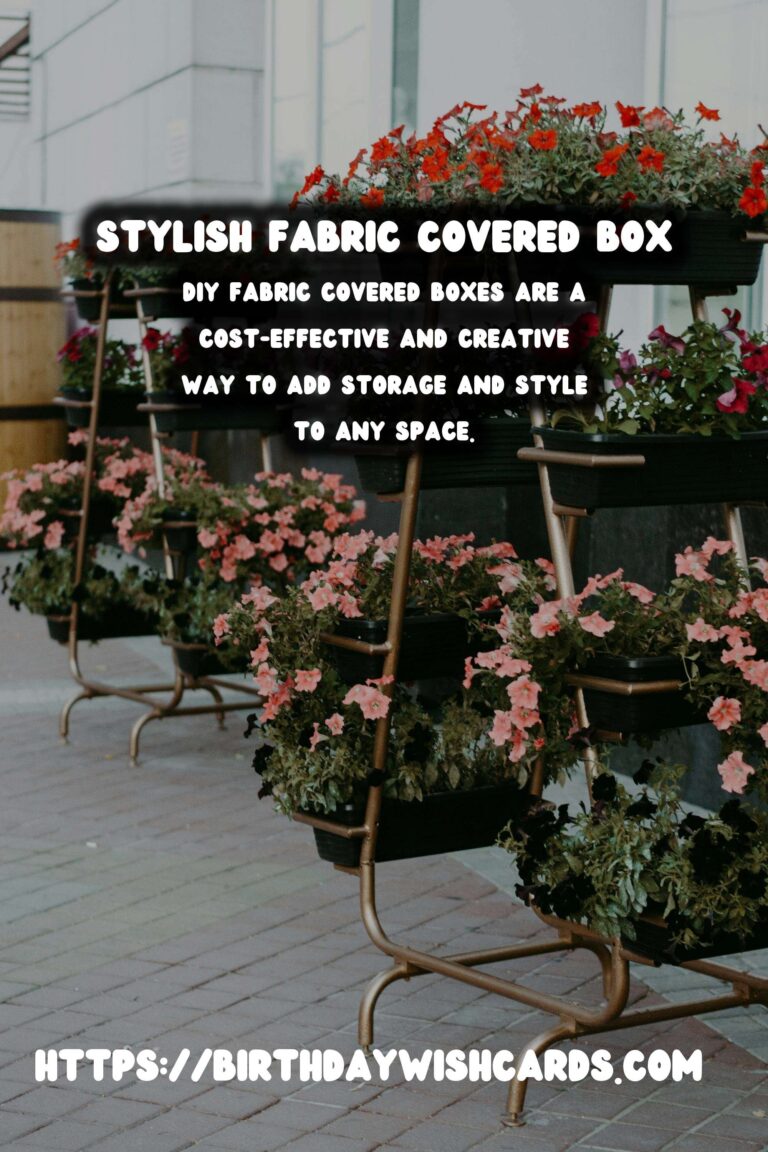
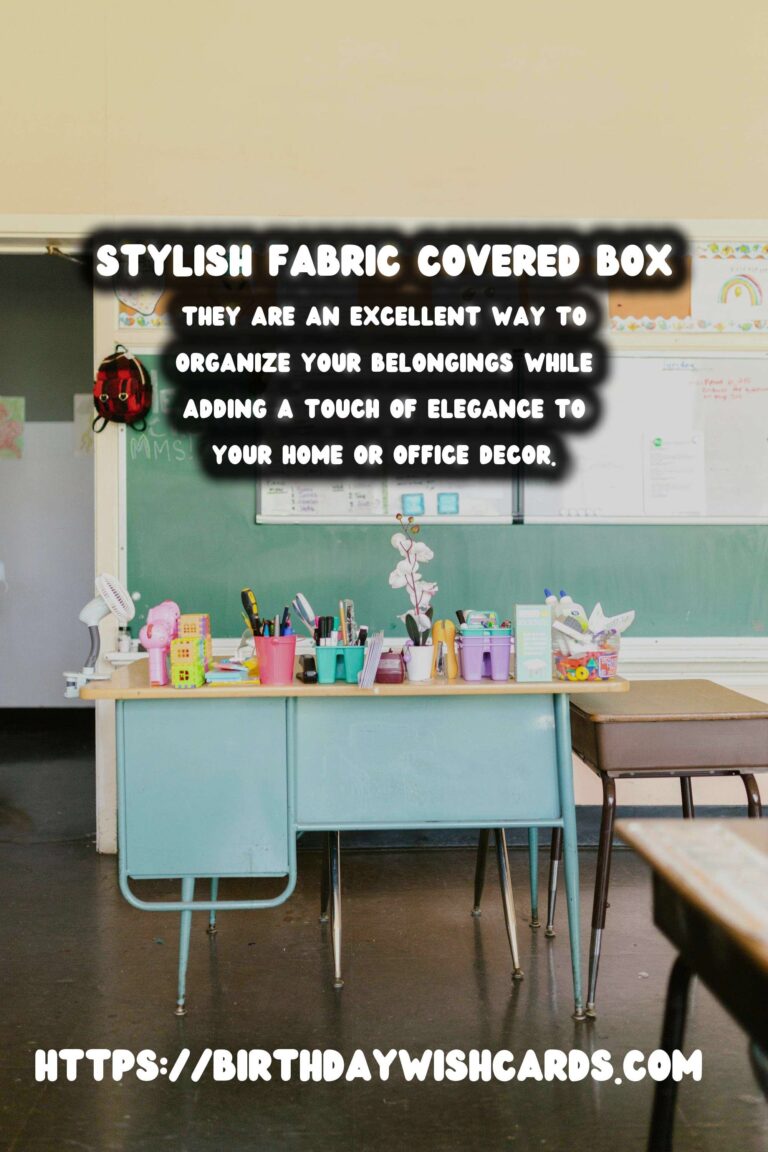
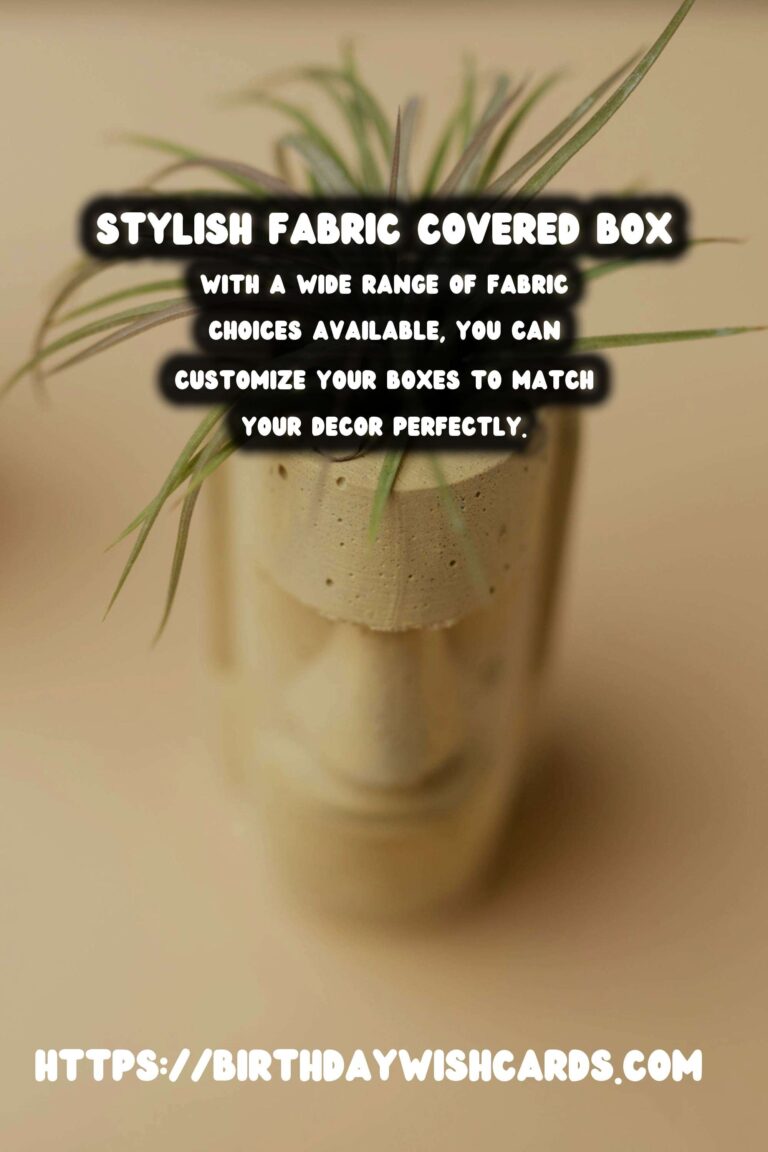
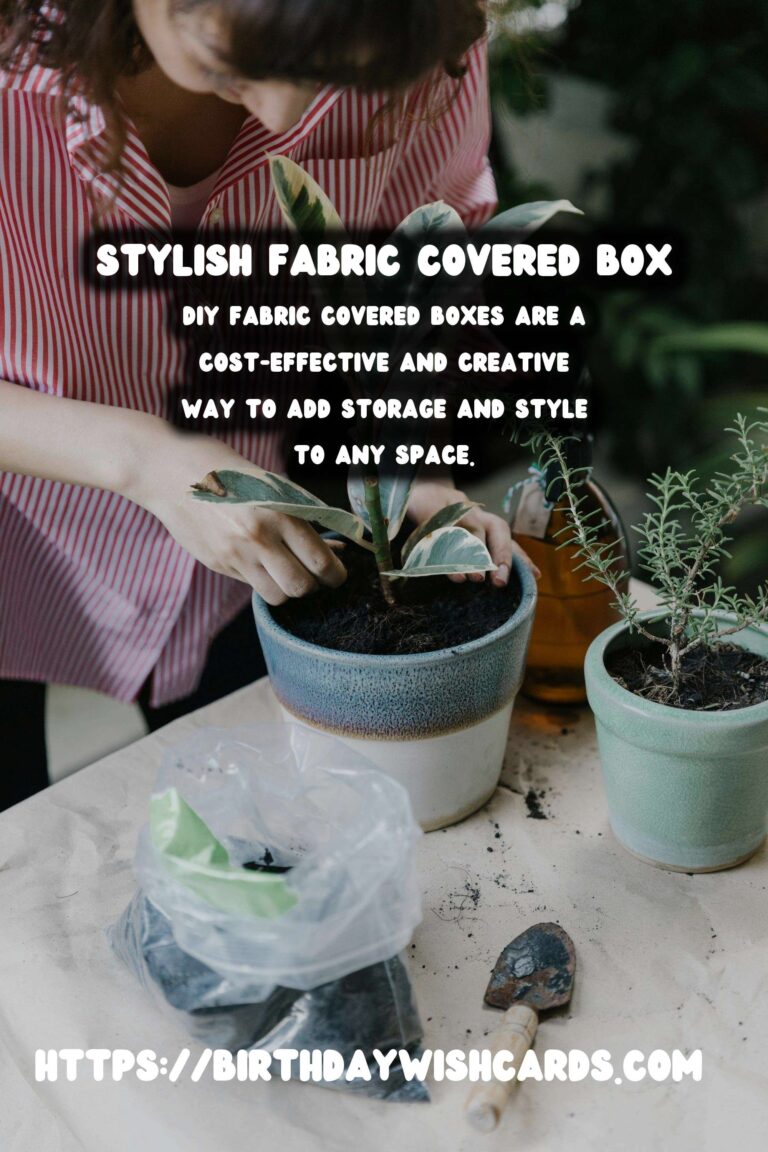

#DIY #FabricCoveredBoxes #StorageSolutions #HomeDecor #Crafts



